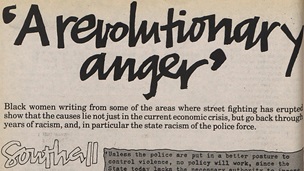
We shall recall that the provisions of the Directive, as implemented in the national legislation of the EU Member States, require that a diligent search for potential rights holders be conducted in good faith for every work contained in the collection of a CHI. A search qualifies as diligent if it has been carried out by consulting ‘appropriate sources’. While the text of the Directive does not specify what constitutes an appropriate source, Annex I does list the general types of sources that are considered relevant per category of work. The Directive leaves it to the Member States to decide what sources should be consulted in order to meet the requirement of a diligent search.
The EnDOW report shows that of the three jurisdictions examined (UK, Italy and Netherlands) only the UK has taken positive steps to ease the task of cultural institutions: the Intellectual Property Office (IPO) has issued a Guidance on searching for right holders in copyright works to obtain permission to reproduce the work in which it has compiled a “check list” for each type of work displaying a number of appropriated sources to be consulted. British CHIs actually know which sources count as appropriate in their quest for the rights owners. As a matter of fact, the British Library is one of the main contributors to the Orphan Works Database of the European Union Intellectual Property Office (EUIPO – the former OHIM).
By contrast, the Dutch Copyright Act merely reproduces the Annex of the Directive without giving any additional information about the sources to be consulted, to the exception of the Royal Library in The Hague. As the list published in the Government Decree demonstrates, the terminology used is unspecific and open-ended, referring for example to the ‘databases of publishers and authors’ without naming the institutions this would entail. No official guidance is available. The Dutch CHIs are therefore confronted with the uncertainty of deciding for themselves what counts as an ‘appropriate source’. They must identify the relevant databases for every category of works covered by the Directive by searching for organizations that represent certain types of right holders. Moreover, in contrast to the UK, it is not clear to whom CHIs should turn to if they have questions. The Dutch situation is not unique: Italy has followed the same approach. The Italian Decree of 10 November 2014 implements the provisions of the Directive in articles 69-bis and following, but does not reproduce the Annex of the Directive.
In countries like Italy and the Netherlands, e.g. any country where the legislator has not specified which databases should be consulted in the context of a diligent search, two legal questions arise: 1) what constitutes a ‘good faith’ diligent search, knowing that the law provides no indication as to scope and sources of the search; 2) what is the consequence of not consulting one or another database, precisely knowing that the law provides no indication as to scope and sources of the search? What about cross-border diligent searches? Which standard should be followed: the country where the search is initiated or the country where the search is carried out?
What’s more: in the three countries examined, it appears that carrying out a diligent search may require consultation of an overly high quantity of diverse sources of information. Most importantly, the analysis shows that a sizeable share of these sources is not easily accessible or, even, not accessible at all.
EnDOW research results:
– A total of over 350 different sources have been identified in Italy; over 200 in the UK and almost 90 in the Netherlands.
– A Diligent Search on published books may require consulting up to 32 different databases in the Netherlands, up to 80 in the UK, and up to 131 in Italy.
– Of all the sources to be consulted to conduct a Diligent Search, 70% are freely accessible online in the UK, 56% in Italy and 54% in the Netherlands. This means that, depending on the country, from a third to almost half of the required sources are not available for free (unrestricted) online access.
– The online availability of sources is the highest for published books (75% in the UK) and the lowest for audiovisual works (only 42% in the Netherlands).
In light of these findings, one final question to be asked at this stage is: how does the limited accessibility of a database, the possible need to pay money in exchange for access or the obligation to abide by other conditions, affect the good faith character of a search, should a CHI decide to omit the consultation of such burdensome databases?
_____________________________
To make sure you do not miss out on regular updates from the Kluwer Copyright Blog, please subscribe here.
Kluwer IP Law
The 2022 Future Ready Lawyer survey showed that 79% of lawyers think that the importance of legal technology will increase for next year. With Kluwer IP Law you can navigate the increasingly global practice of IP law with specialized, local and cross-border information and tools from every preferred location. Are you, as an IP professional, ready for the future?
Learn how Kluwer IP Law can support you.


